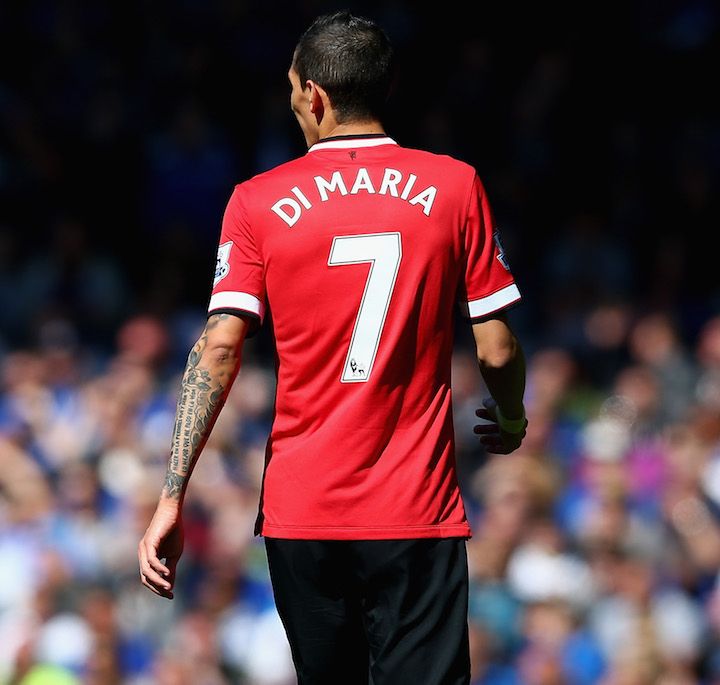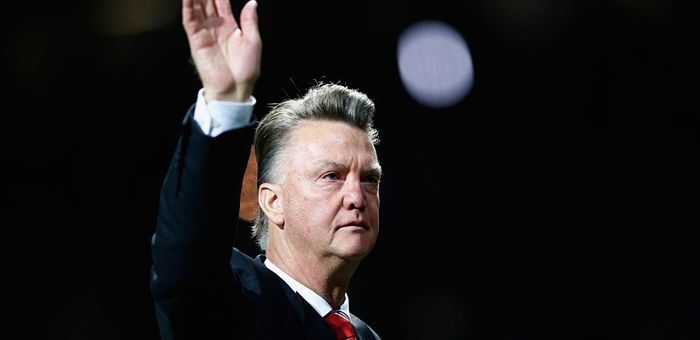

Share
17th December 2017
04:25pm GMT

 Then there have been the biggies, with Romelu Lukaku and Paul Pogba costing a combined €190m. However, Lukaku has justified his price-tag with goals while Pogba is United's most influential midfielder. Lukaku and Pogba were expensive, but they have good signings.
And while Neville is right to slam United's recruitment which has often been questioned under Woodward, the problem stretches back to Ferguson's later years. The Scot failed to sign a long-term midfield replacement for Paul Scholes, instead persisting with the likes of Tom Cleverley, Anderson and Darron Gibson.
When an injury crisis in January 2012 left Ferguson with a frighteningly threadbare midfield, Scholes was persuaded into reversing his retirement. Some United fans may not feel comfortable questioning Ferguson, but the truth is that he left Moyes with a sub-par squad which, combined with his successor being hopelessly out of his depth, amounted to a painful period of mid-table mediocrity following his retirement.
Then came the Louis van Gaal era, which is enough to make most United supporters shudder. Di Maria didn't prove to be the Galactico superstar Woodward had hoped for, while the captures of Depay, Schneiderlin and Bastian Schweinsteiger turned out to be a waste of €75m. Radamel Falcao on loan was also a failed experiment.
Then there have been the biggies, with Romelu Lukaku and Paul Pogba costing a combined €190m. However, Lukaku has justified his price-tag with goals while Pogba is United's most influential midfielder. Lukaku and Pogba were expensive, but they have good signings.
And while Neville is right to slam United's recruitment which has often been questioned under Woodward, the problem stretches back to Ferguson's later years. The Scot failed to sign a long-term midfield replacement for Paul Scholes, instead persisting with the likes of Tom Cleverley, Anderson and Darron Gibson.
When an injury crisis in January 2012 left Ferguson with a frighteningly threadbare midfield, Scholes was persuaded into reversing his retirement. Some United fans may not feel comfortable questioning Ferguson, but the truth is that he left Moyes with a sub-par squad which, combined with his successor being hopelessly out of his depth, amounted to a painful period of mid-table mediocrity following his retirement.
Then came the Louis van Gaal era, which is enough to make most United supporters shudder. Di Maria didn't prove to be the Galactico superstar Woodward had hoped for, while the captures of Depay, Schneiderlin and Bastian Schweinsteiger turned out to be a waste of €75m. Radamel Falcao on loan was also a failed experiment.
 But, under Mourinho, at least there has been evidence of a clear strategy. With Zlatan Ibrahimovic's injury and advancing years, signing a proven goalscorer became a top priority in the summer, so Lukaku was signed. There have also been defensive recruitments with the future in mind in the shape of Eric Bailly and Victor Lindelof.
Mkhitaryan has not turned out to be the creative force Mourinho needed but snapping up Nemanja Matic from rivals Chelsea was an outstanding piece of business.
While Neville is right to point out United's recruitment in the post-Fergie era, the blame does not lie with Mourinho. They're behind City but ahead of everyone else, which is a lot more than what you can say about them under Moyes and van Gaal.
Ferguson must shoulder some of the blame, too, as the recruitment in his final couple of seasons plunged the club into uncertainty. While it has improved under Mourinho, the main problem no longer lies with recruitment. Mourinho's problem lies more with a brand of football that is not expressive, adventurous or attractive enough to appease a fanbase disenchanted with City's utter superiority.
But, under Mourinho, at least there has been evidence of a clear strategy. With Zlatan Ibrahimovic's injury and advancing years, signing a proven goalscorer became a top priority in the summer, so Lukaku was signed. There have also been defensive recruitments with the future in mind in the shape of Eric Bailly and Victor Lindelof.
Mkhitaryan has not turned out to be the creative force Mourinho needed but snapping up Nemanja Matic from rivals Chelsea was an outstanding piece of business.
While Neville is right to point out United's recruitment in the post-Fergie era, the blame does not lie with Mourinho. They're behind City but ahead of everyone else, which is a lot more than what you can say about them under Moyes and van Gaal.
Ferguson must shoulder some of the blame, too, as the recruitment in his final couple of seasons plunged the club into uncertainty. While it has improved under Mourinho, the main problem no longer lies with recruitment. Mourinho's problem lies more with a brand of football that is not expressive, adventurous or attractive enough to appease a fanbase disenchanted with City's utter superiority.Explore more on these topics: